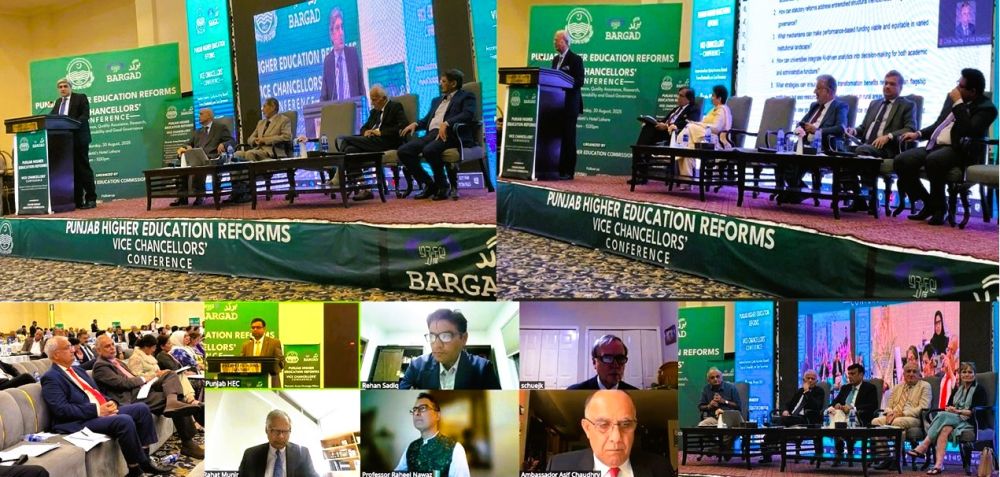52/25 How does the former chairperson of HEC perceive the higher education landscape?
Posted 10 months ago
Thanks to Prof. Dr. Javaid Laghari and Mr. Rehan Allahwala for sharing their conversation.
Former Chairperson of the Higher Education Commission of Pakistan, Prof. Dr. Javaid Laghari has suggested that the conventional degree structure should be replaced with faster, skills-based academic credentials. The argument stems from the pressing need to reskill the workforce efficiently, equipping individuals with specialized competencies that match contemporary industry needs. However, this proposition raises fundamental questions about the purpose of higher education and its role in shaping well-rounded individuals.
The push for accelerated educational programs aligns with the growing global trend of micro-credentials, boot camps, and competency-based learning. Industry giants like Google, Microsoft, and IBM have already embraced short-term certification programs prioritizing employability over theoretical knowledge. Countries such as Germany and Singapore have implemented vocational training models that integrate hands-on experience with streamlined curricula, producing a workforce that is both agile and job-ready. Given this backdrop, the call for replacing extended degree programs with shorter, skill-focused courses appears pragmatic.
However, the debate does not end here. Prof. Dr. Muhammad Mukhtar, Vice Chancellor of the National Skills University Islamabad, offers a compelling counterargument. While he acknowledges the need for skills-based education, he emphasizes the significance of holistic development in higher learning. Universities are not merely certification mills but invaluable incubators for critical thinking, ethical reasoning, interpersonal skills, and intellectual curiosity. The traditional academic environment fosters peer-to-peer interactions, mentorship, and exposure to diverse perspectives, all contributing to a graduate’s adaptability and long-term success. If not carefully structured, accelerated learning programs may risk undermining these essential aspects of education. The human experience cannot be condensed into a fast-tracked module. Leadership, problem-solving, and civic responsibility - traits necessary for sustaining democratic societies and dynamic economies - are cultivated through immersive educational experiences, not just industry-aligned training. A purely skills-based education might produce individuals who are proficient in their field but lack the broader understanding and critical thinking skills necessary for societal and economic progress.
The optimal path forward may not lie in a binary choice between traditional degrees and skill-based programs but in a blended model combining both worlds. Universities must innovate by incorporating modular learning, industry partnerships, and real-world applications into curricula. Integrating digital platforms with hands-on training and hybrid education can ensure that students graduate with the specialized skills required for immediate employment and the broader competencies necessary for lifelong success.
The challenge before us is not merely about shortening the time frame of education but redefining what it means to be truly educated. As we reimagine the higher education landscape, we must ensure that efficiency does not come at the cost of enlightenment. The key is to strike a balance, ensuring that students are equipped with the necessary skills for immediate employment while also fostering the broader competencies necessary for lifelong success.





